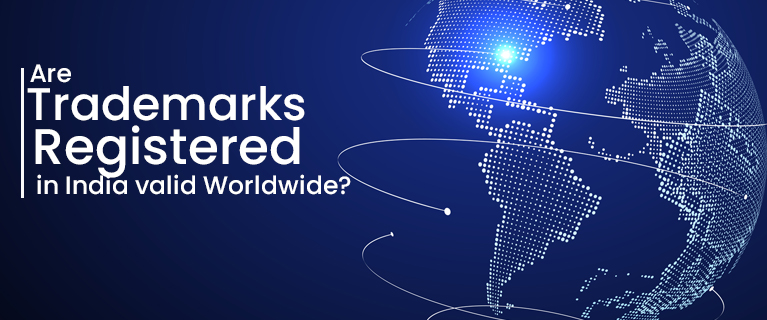Protecting your brand through trademark registration is crucial for businesses seeking international opportunities. While a trademark registered in India provides territorial protection, it’s not automatically valid worldwide. This limitation necessitates separate filings in each country where protection is desired. However, international conventions like the Madrid Protocol streamline this process, offering a centralised system for trademark registration across member countries.
Benefits of Filing a Trademark in India:
1. Legal Protection against Copycats and Counterfeit Products:
Trademark registration in India establishes a legal shield, deterring unauthorized use of your brand. This is pivotal in safeguarding your business from copycats and counterfeit products that could otherwise harm your brand reputation and market share.
2. Exclusive Ownership over Your Brand’s Visual Cues:
By obtaining a registered trademark in India, you gain exclusive rights to key visual elements such as logos, symbols, and words associated with your brand. This exclusivity not only protects your unique brand identity but also enables you to stand out in the market.
Read Also This – How to Register a Trademark Internationally
3. Recognition and Credibility in the Market:
A registered trademark enhances your brand’s visibility and credibility. Consumers often rely on recognizable brand images when making purchasing decisions. By registering your trademark, you strategically position your brand for increased recognition and trust in the market.
4. Conversion of Goodwill and Trust into a Valuable Intangible Asset:
The trademark transforms the goodwill and trust your brand has cultivated into a valuable intangible asset. This legal protection adds significant value to your brand, especially as it grows, and becomes an integral part of your overall business strategy.
5. Low-Cost Protection against Trademark Infringement for 10 Years:
Registering a trademark in India provides a cost-effective means of long-term protection. With a nominal fee, you secure exclusive rights for a period of 10 years, shielding your brand from potential infringement and ensuring stability in your market presence.
6. Strong Basis for Trademark Registration in Foreign Countries:
A registered trademark in India serves as a strong foundation for expanding your brand internationally. Many countries recognize and respect trademarks registered in India, making the process of obtaining trademark protection abroad smoother and more efficient, supporting your brand’s global aspirations.
Are Trademarks Registered in India Valid Worldwide?
- Trademarks and Territoriality:
Trademarks are, by nature, territorial, and registration in one country does not confer automatic protection worldwide. Each country has its own trademark system, and a mark must be registered in each jurisdiction where protection is desired.
- The Madrid Protocol:
The Madrid Protocol is an international treaty designed to simplify and streamline the process of obtaining trademark protection across multiple countries. Administered by the World Intellectual Property Organization (WIPO), the Madrid Protocol provides a centralized system for trademark registration.
Key Features of the Madrid Protocol:
1. Single Application Process:
With the Madrid Protocol, a trademark owner can file a single international application through their home country’s trademark office. This application can then be used to seek protection in any of the member countries of the treaty.
2. Cost Efficiency:
The Madrid Protocol offers cost efficiencies by reducing the need for separate filings in each country. This can be particularly advantageous for businesses seeking international trademark protection without navigating the complexities of individual national systems.
3. Centralized Management:
Once the international Trademark registration is granted, the trademark owner can manage and renew their protection through a centralized system. Changes, such as modifications to the mark or the addition of new countries, can also be handled through this system.
4. Extension of Protection:
The Madrid Protocol allows for the extension of protection to additional countries over time. This flexibility is beneficial for businesses that may initially focus on specific markets but later decide to expand their global footprint.
5. Simplification of Procedures:
The protocol simplifies administrative procedures, making it more convenient for businesses to navigate the international trademark registration process. This includes a standardized renewal process and a single set of fees.
Read Also This – Can I Use A Trademark From Another Country
Considerations:
While the Madrid Protocol offers advantages, it’s essential to note that not all countries are members, and some countries may have specific requirements or restrictions. The success of international trademark protection also depends on the acceptance of the mark in each designated country, as local laws and regulations vary.
In summary, while trademarks registered in India do not automatically gain global validity, mechanisms like the Madrid Protocol provide a more efficient and streamlined way for businesses to seek international trademark protection.
How Does the Madrid Protocol Work?
The Madrid Protocol, also known as the Madrid System, streamlines the simultaneous registration of trademarks in multiple countries. Envisioned to grant reciprocal trademark protection rights, it provides a centralized registration system for member countries, including India.
Advantages of Filing Under the Madrid Protocol:
1. Extensive Coverage: With over 100 member countries, the Madrid Protocol covers the territories of 124 nations, representing more than 80% of world trade flows. This broad reach is advantageous for Indian exports.
2. Cost-Effectiveness: The Madrid Protocol offers a cost-effective, easy, and fast route to trademark protection globally. Without this system, applicants would need to file separate applications in each country, incurring more costs and administrative efforts.
3. Time and Effort Savings: By streamlining the process, the protocol saves time and effort otherwise spent on multiple applications, translations, currency exchanges, etc.
4. International Partnerships and Franchising Opportunities: Trademark protection through the Madrid Protocol enhances international partnerships and opens up franchising opportunities outside of India.
5. Integration with Global Supply Chains: Businesses benefit from the protocol by seamlessly integrating into global supply chains, further expanding their reach.
India and the Madrid Protocol:
India became the 90th member of the Madrid System in 2013. This led to significant adjustments in Indian Trademarks Law, with the inclusion of Chapter IVA (Sections 36A to 36G) in the Trademarks Act, 1999, titled ‘Special Provisions relating to Protection of Trademarks through international registration under the Madrid Protocol.’
Process for Trademark Registration Under Madrid Protocol:
1. Application Submission: File an application on the Indian trademark registration website, www.ipindia.gov.in.
2. Verification by Indian Trademark Registry: The Indian trademark registry verifies the applicant’s status as the basic mark holder and identifies the goods and services covered.
3. Transfer to WIPO: The application is then transferred to the World Intellectual Property Organization (WIPO) in Geneva.
4. Formal Examination by WIPO: WIPO conducts a formal examination, and if all requirements are met, the trademark is recorded in the International Register and published in the WIPO Gazette of International Marks.
5. Notification to IP Offices: WIPO notifies the intellectual property offices in the territories where protection is sought.
6. Objection Period: If no objections are filed within 12 or 18 months, depending on the country, protection is granted.
7. Non-Impact of Refusal: If one IP office refuses protection, it doesn’t affect decisions in other offices.
8. Validity and Renewal: International Trademark Registration is valid for 10 years, and renewal can be done through the Madrid System.
Read Also This – Why do you need USA Trademark Registration
Why Should Your Trademark Be Protected Internationally?
1. Export Market Share Protection:
- Global Reputation Safeguard: International trademark protection is essential for businesses that export goods or services. It shields your brand’s reputation and goodwill in foreign markets, where your products or services may be well-received and contribute significantly to market share.
- Prevention of Counterfeiting: A registered trademark internationally acts as a deterrent against counterfeit products or services. It provides legal grounds to challenge unauthorized use, protecting consumers from substandard imitations and maintaining the authenticity of your brand.
2. Entry into Prospective Markets:
- Liaison Office and Partnerships: When establishing liaison offices or entering into partnerships with foreign entities, securing international trademark rights is a proactive step. It prevents potential conflicts by legally defining your brand identity and reducing the risk of unauthorized use by local entities.
- Contractual Relationships: Dealing with exporters, licensees, contractors, or any third party in a foreign market necessitates a solid legal foundation. International trademark protection ensures that your brand remains exclusive, minimizing the risk of disputes and reinforcing your negotiating position in contractual relationships.
Market Expansion Readiness: Even if your brand hasn’t entered a foreign market yet, having international trademark protection lays the groundwork for future expansions. It positions your brand as serious about global presence, discouraging others from attempting to capitalize on your reputation before you officially enter a market.
Conclusion:
Trademark registration in India is the first step in protecting your brand, but for global businesses, international protection is paramount. Leveraging mechanisms like the Madrid Protocol not only simplifies the process but also enhances the reach and credibility of your brand on a global scale. As India continues to engage in international trade, securing trademark rights internationally becomes a strategic imperative for businesses aiming for sustained growth and success.


